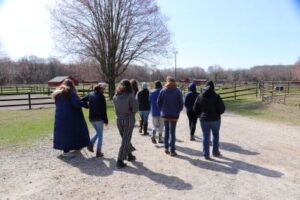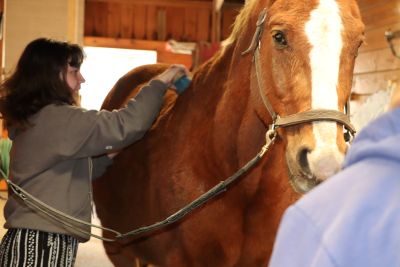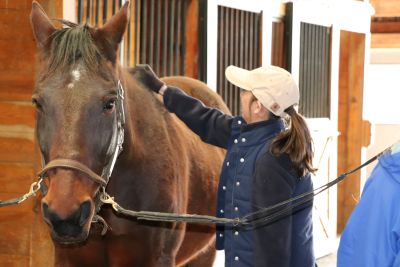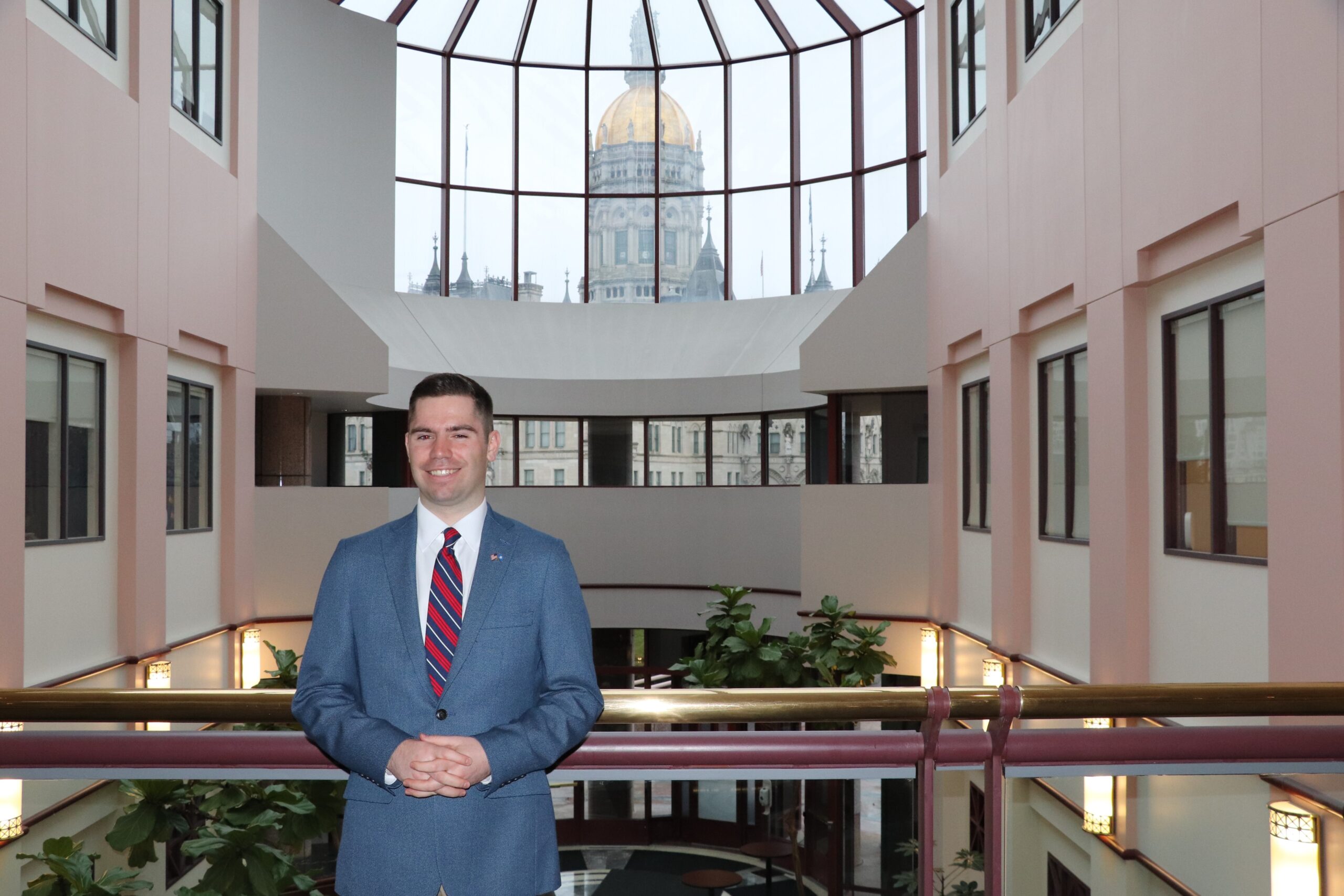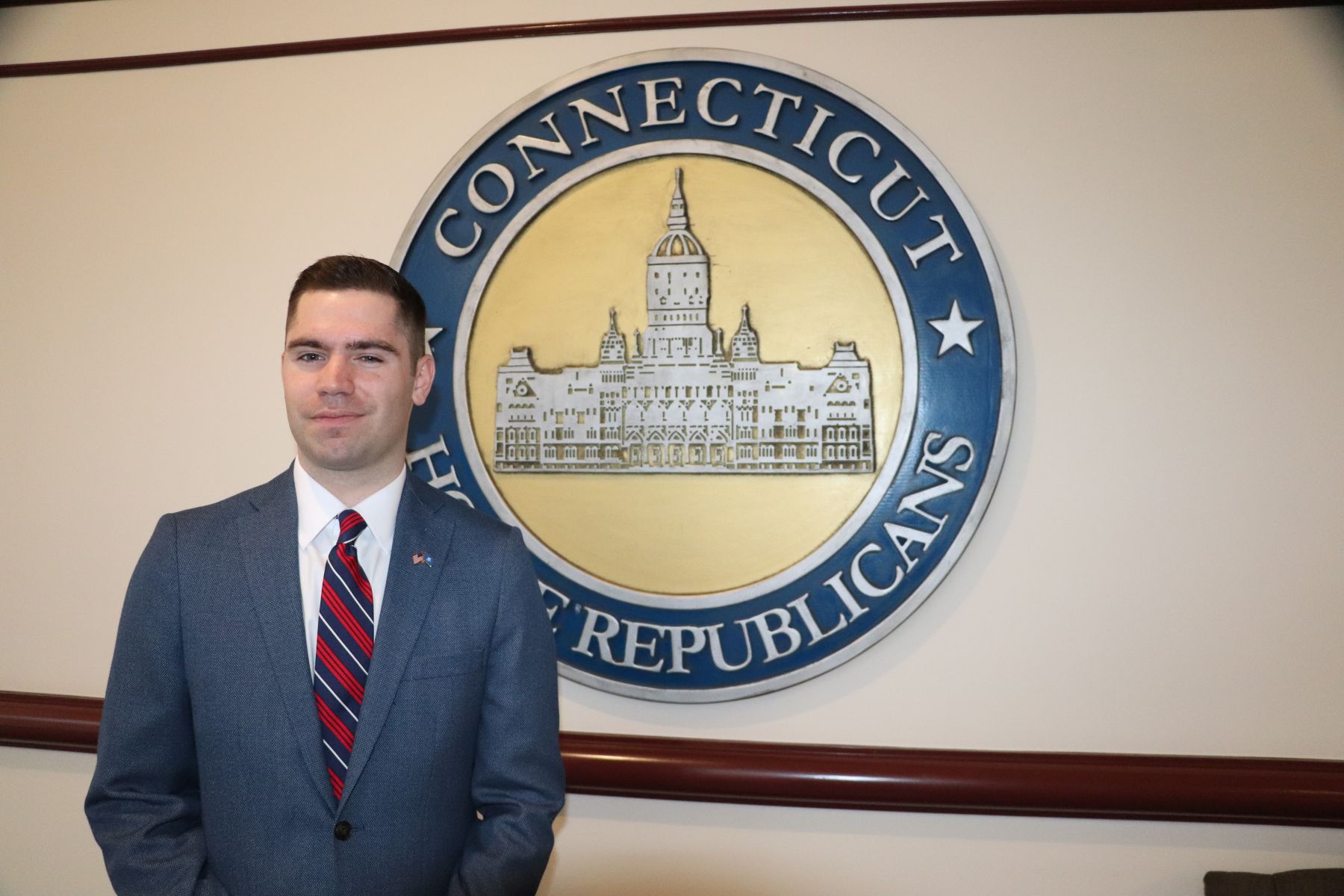Psychology Majors Sweep Commencement Achievement Awards
Psychology majors from the Division of Behavioral and Social Sciences “swept” the awards for highest academic achievement at the 2025 Commencement ceremony, with Isabella “Bella” Avalos named Valedictorian, and Allison Blum and Thomas Progano tied as Salutatorians.
Bella and Allison talked about their career goals and how they will use their favorite psychology courses to advance their professional lives.
Forensic Psychology and Rehabilitative Justice
Bella, who minored in criminal justice, hopes to pursue a doctorate in forensic psychology and work as a licensed clinician for incarcerated individuals in corrections and reentry programs.
“I am interested in studying behavior and the factors that guide it. There are many fields where psychology is used, and it intersects with criminal justice, another interest of mine. When I chose my major and minor, I wanted to understand how they are used together within the justice system,” she said.
Bella has a long-term goal of working in therapy in the justice system but also conducting research on rehabilitative justice for the corrections community. She currently interns in probation in Orange County, California, where she works with incarcerated youth in a rehabilitative capacity.
“This work is something I value greatly and a core reason for me wanting to pursue a career in forensic psychology.”
She cited the Mitchell College courses that she will draw from in her work in psychology and her day-to-day life.
“Psychology of Well-Being was one of my favorite courses at Mitchell. Psychology focuses a lot on abnormalities and dysfunction, but this course provided different principles to living a fulfilling life that I found helpful not only for my career but also personally. I also enjoyed Behavioral Statistics because it gave me the foundational knowledge to discern and interpret data that was extremely helpful with my research at Mitchell for my Honors Program thesis, ‘An Analysis of the School-to-Prison Pipeline.’ One of my career goals is to contribute to the growth of my desired field through research. This class provided good preparation.”
Marriage and Family Therapy
Allison will start graduate school in the fall to work on a master’s degree in marriage and family therapy.
“Mental health is so important to me, and I love helping others feel good about themselves. I have been in therapy for a long time, and it’s been so helpful to me. My hope is to help others in the same way,” she said.
One of her favorite Mitchell psychology courses will inform her work in graduate school.
“In my Family Systems course, I loved taking a deeper dive into each family dynamic and how it affected the person. I found the course to be very helpful because I was introduced to the research of psychologists Drs. John and Julie Gottman. I admire the Gottman Institute and their view on how relationships work. I like looking at the bigger picture when it comes to the person and why they are the way they are.”
Allison examined relationships for her Honors Program thesis, “Power Dynamics in a Coach Athlete Relationship.”
She also found her Grad School and Beyond class helpful as she prepared to apply for graduate school.
Allison looks forward to pursuing her goal of earning her master’s degree and becoming a licensed therapist.
“In the future, I hope to have an established practice helping others, especially those who are married with children. I would love to help people be great parents who help create wonderful children who will grow into wonderful people.”
Class of 2025
While the Behavioral and Social Sciences faculty celebrated the spotlight on this group of students from their program this year, the graduating class of 2025 distinguished themselves academically across all programs:
- 44 were Honor Society members
- 28 graduated cum laude
- 35 graduated magna cum laude
- 4 graduated summa cum laude
In the above photo, l-r: Professor Jen Mauro and Dr. Joanna Gentsch, professors of psychology, Allison Blum, Bella Avalos, Thomas Progano, and Dr. Nancy Parent, chair of Division of Behavioral and Social Sciences
